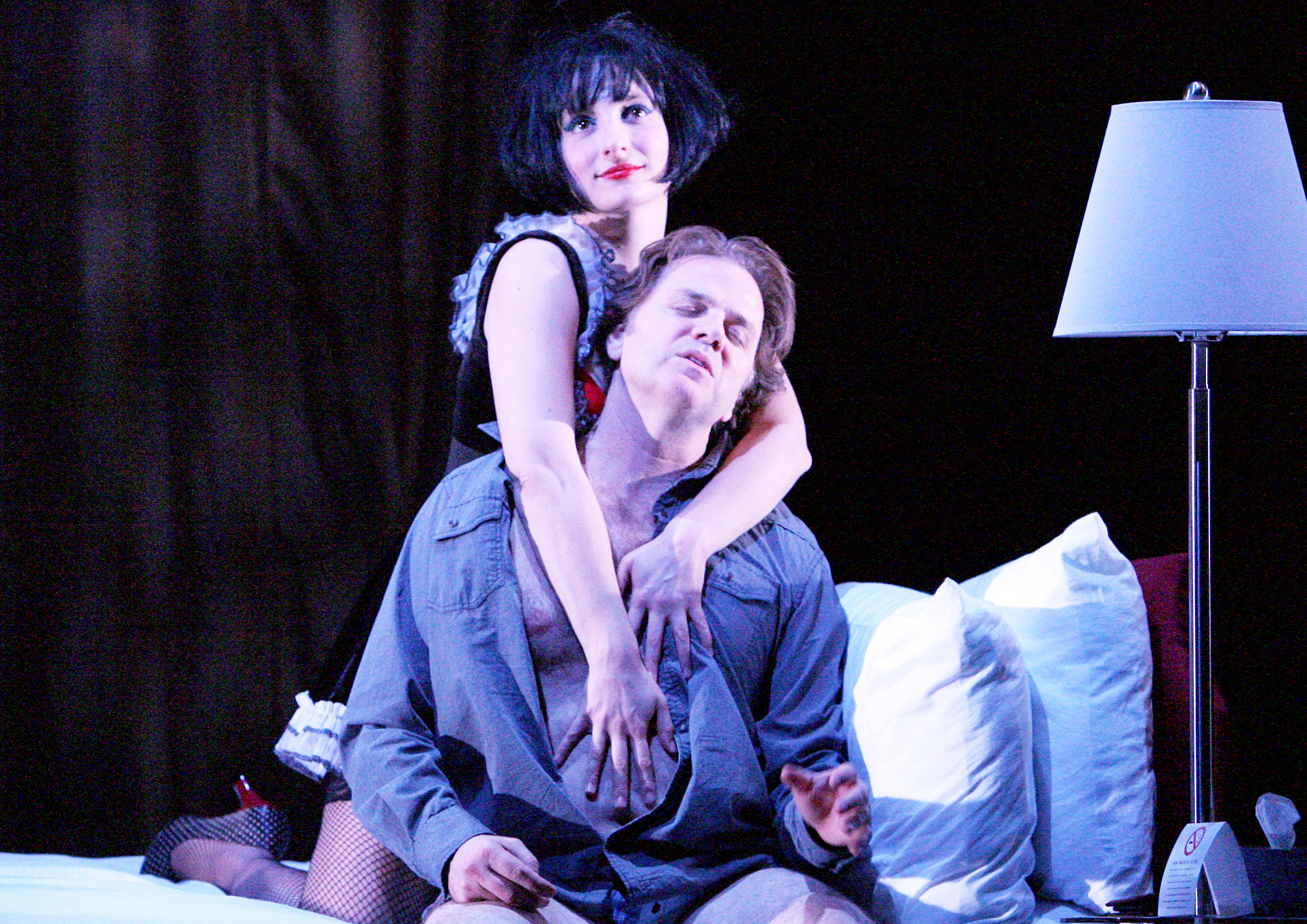Theater Review

Courtesy of MICHAEL LAMONT
"BREAK OF NOON"
Geffen Playhouse
Through March 6
![]()
![]()
![]()
By Claire Hellar
Feb. 7, 2011 12:05 a.m.
“Break of Noon,” playing at the Geffen Playhouse until March 6, opens with a gunshot, as John Smith shouts “Bang!” Played with on-and-off intensity by Kevin Anderson, John verbally replays the shooting that just happened at his office building.
Disheveled and wrapped in a blanket, his foot bandaged, he gives the impression of arriving straight from the scene of the crime. He’s an oddly unconvincing narrator from the first moments of the play, neither hysterical enough to have just come from the shooting nor calm enough to be reflecting on it from much later. It’s unclear whether this ill-modulated emotional state is a weakness on the part of the actor or the script itself, but it creates an unsatisfactory opening scene.
Claiming that he heard the voice of God during the shooting, John is convinced that God saved his life and that he has been “chosen” to spread God’s word to the world.
He interacts with six people in the play, three of whom are known to him and three of whom are strangers. He meets first with his lawyer, played by John Earl Jelks, in one of the stronger scenes in the play. The lawyer hones in on the violence and death in his story with hilariously ghoulish delight.
He then meets with his ex-wife and ex-lover in turn (both played with aplomb by Catherine Dent), in abortive attempts to make things right with those close to him. These scenes are weaker, characterized by stilted dialogue.
During the play, he seeks out three women ““ and reduces all of them to tears. Disturbingly, two out of the three conversations end with him physically restraining the woman, his verbal protestations of faith at odds with the sexual dominance of his actions.
Tracee Chimo plays a brittle reporter and an insecure prostitute in turn, and is pitch-perfect and wonderful, her overwrought characters a counterbalance to the other, more measured female roles.
John also meets with a detective (also John Earl Jelks), whose personal Christian faith makes him the most articulate and commanding skeptic of John’s claims.
By this time in the play, John Smith has become an intensely ambiguous figure. Before his divine experience and apparent conversion, he was a lying, manipulative philanderer. As the play goes on, it becomes increasingly clear that he has not changed ““ his actions have changed, but not his fundamental nature.
In one particularly raw scene, he tries to convert a prostitute, but does so through manipulation and near-violence. His most common response to criticism of his newly reformed, yet still screwing-up, character is a querulous, “I’m trying, OK?”
The question that ultimately arises is this: Is it possible for a man to have been touched by God and still remain so selfish, so egomaniacal and so domineering?
As he meets with various people throughout the play, he sticks stubbornly to his simple (one of the characters calls it “simplistic”) interpretation of what happened to him. He is certain that something supernatural occurred, and this becomes a refrain in the play.
The name “John Smith” reflects his status as an everyman, though it could also refer to Joseph Smith Jr., the founder of Mormonism.
John emerges as both an unreliable narrator and an unsympathetic figure over the course of the play, but playwright Neil LaBute mixes in just enough seeming conviction and doubt to hold out the possibility that he was indeed divinely touched. Ultimately, however, the “truth,” or lack thereof, behind his message seems almost irrelevant; as a modern-day prophet, he is immensely flawed and dislikable. There’s relatively little God in this play; this is one story that is all about John Smith.
When a twist at the end attempts to salvage John’s status as a changed man, it simply rings hollow. “Break of Noon” is a taut and often gripping play that ultimately undercuts itself.


